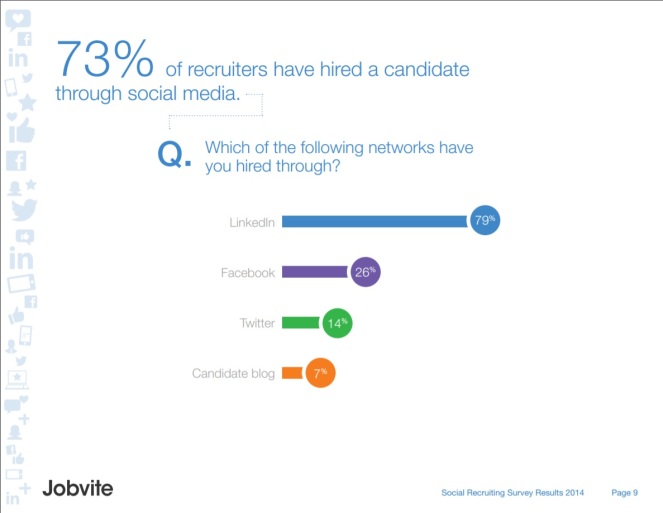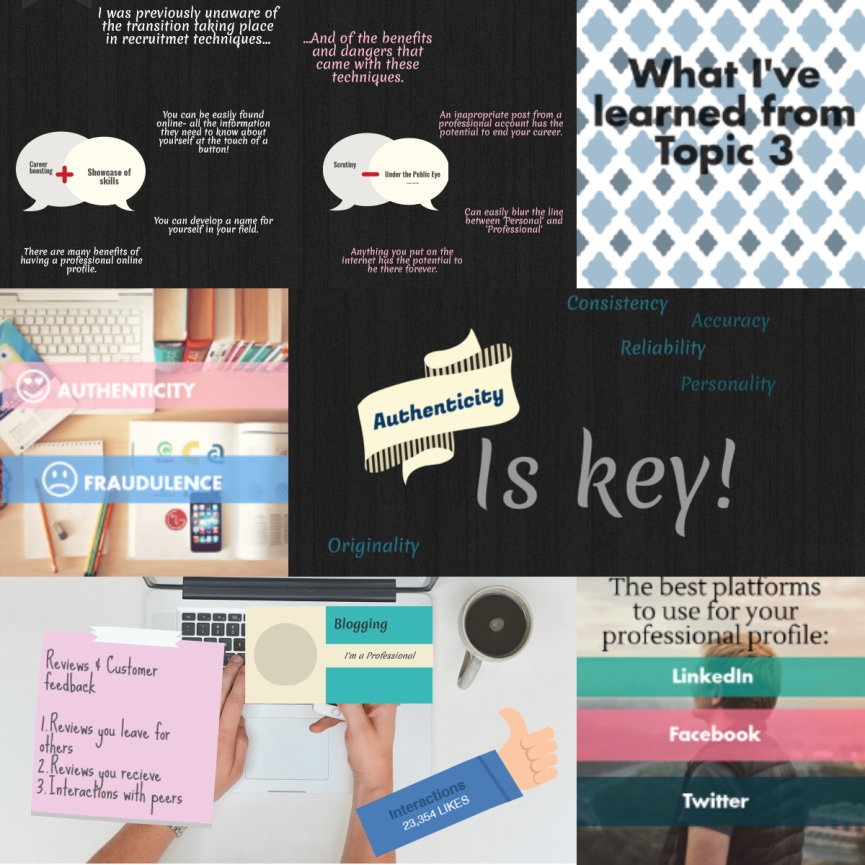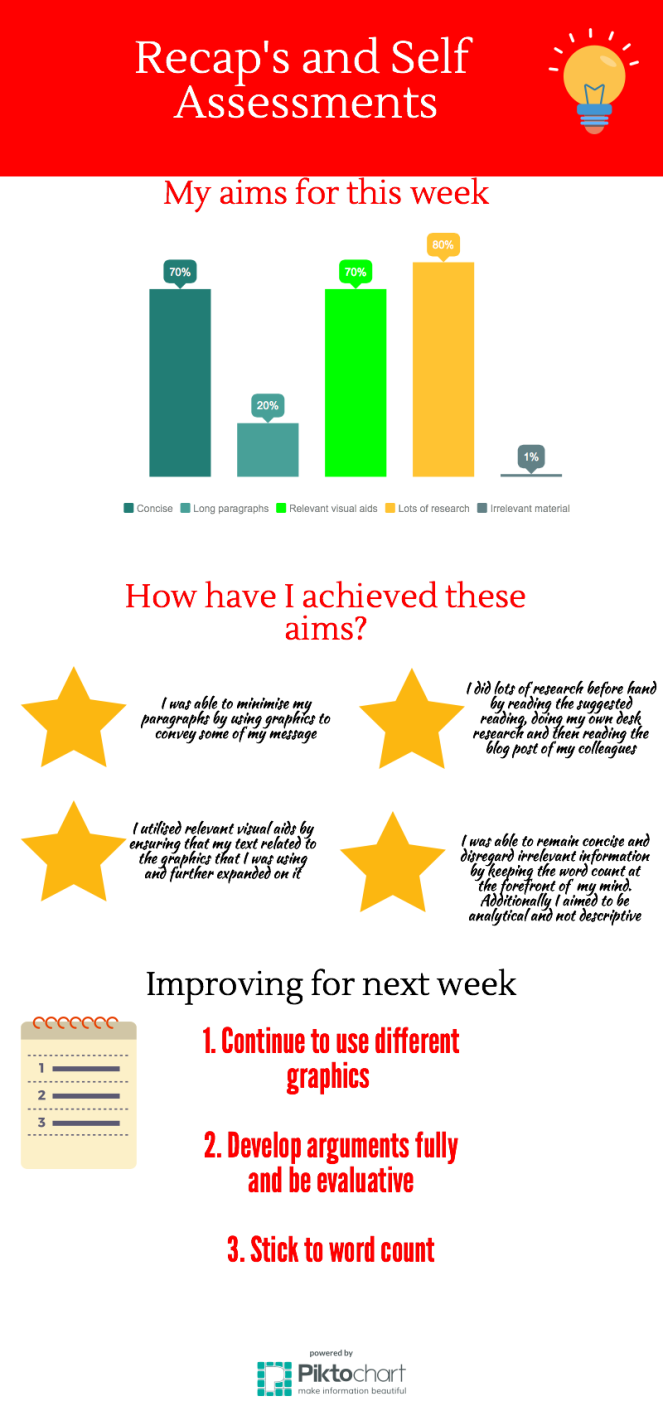
Topic 3: Reflection
In this topic I have considered the ways in which an authentic online professional profile can be developed. In my initial post I outlined a few simple aspects of a professional online profile, including the need for consistency, identifiability, trustworthiness and the importance of searchability.
(Made my me for my first post on this topic, 2017)
A blog post by Caiti led to me considering the alternative perspective on an online profile in my first comment.
Continue reading →
















